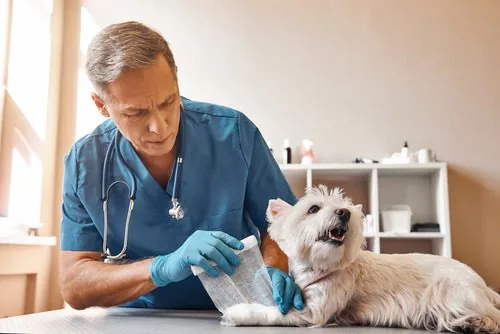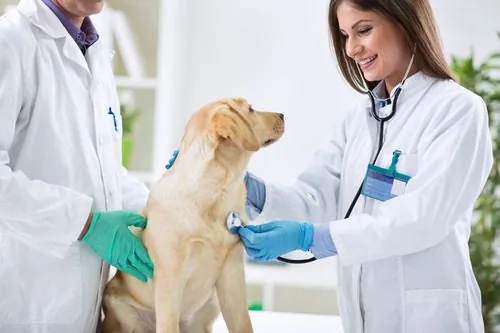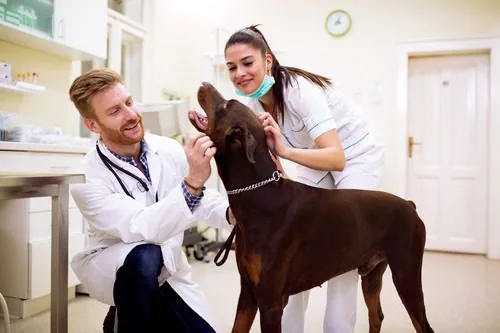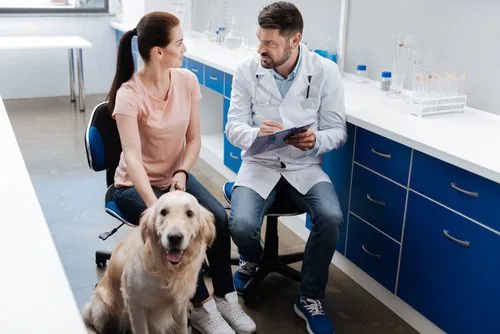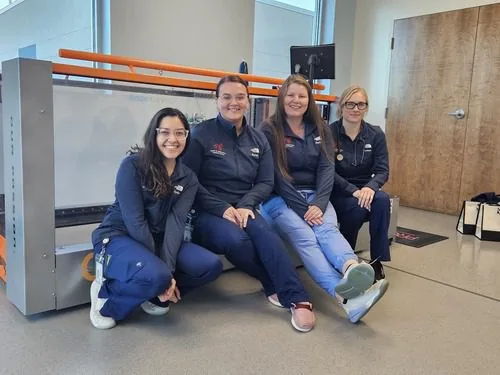Winter Haven Cat Owners: 4 Cat Constipation Symptoms
Having a sick cat on your hands is never fun, especially because they cannot tell you how they are feeling and what is wrong with them. Luckily, we can look at some clues from sick pets by taking note of any strange symptoms or behaviors. Today we will be looking at some signs of constipation in cats.
Constipation in cats is actually characterized in the same way as constipation that occurs in people. A cat that is constipated may make less frequent trips to the litter box, strain when they are trying to go, and have smaller or harder stool than usual.
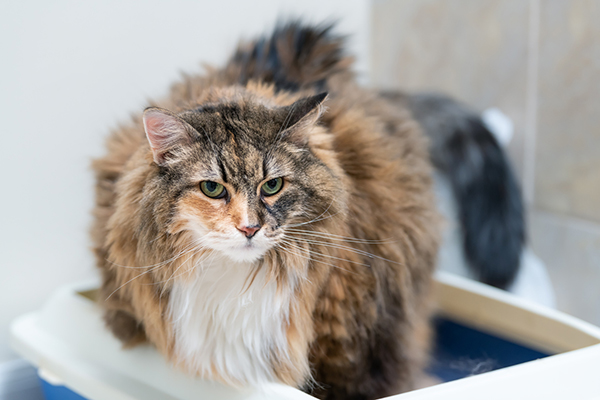
In this article, we will be explaining the symptoms of constipation in cats. We will also be explaining some causes for constipation in cats and explaining what you can do to treat it. In addition, it will be explained when you should take your cat to the vet for constipation. Let’s get to it!
What Can Cause Constipation in Cats?
There are actually many potential causes of constipation in our feline friends, and they range from some everyday issues that are easy to fix to some more serious medical conditions. Here are some of the most common causes of constipation in cats.
Dehydration
Like in people, dehydration can cause constipation in cats. This is most common when a cat has an exclusively dry food diet. As a result it is recommended that you always have fresh drinking water available to your cat.
If your cat seems to be constipated and this isn’t a usual ailment for him, try giving your cat some water. If it clears up then this is likely the cause.
In addition, you could also try changing your cat’s food and making some lifestyle changes by increasing exercise and mental enrichment.
Hairballs
Hair balls can cause some minor constipation in cats as well. This is especially true if the cat has long hair. Like when constipation is caused by dehydration, hair balls tend to just cause some minor constipation every once in a while.
The constipation should pass once the hairball does when this is it’s cause. However, you may still need to take your cat to the vet to ensure that this is truly the cause of their constipation.
They Ate Something They Shouldn’t Have
Sometimes constipation can occur in animals after they have eaten something they really shouldn’t have. Eating a foreign body can be very dangerous for cats, so you should take your cat to the vet immediately if you suspect that this is the cause for their constipation.
Megacolon
Megacolon is a medical condition where a cat has an enlarged or distended colon. This condition has a wide variety of causes, but chronic constipation can be one of them. In addition, Megacolon can cause constipation as well. Some other common symptoms of Megacolon in cats include but are not limited to:
- Lethargy
- Reduced appetite
- Weight loss
- Constipation
- Diarrhea and vomiting
If you suspect that your cat has Megacolon then you should take them to the vet as soon as possible.
They may need an enema or even surgery to relieve the problem. It is crucial to mention that you should never give your cat an enema yourself. Enemas can be extremely painful for cats that are awake, and some chemicals included in enema kits intended for humans can even be toxic for cats.
Other Conditions
Some other conditions could potentially cause constipation in cats as well. However, many of these conditions often include other symptoms along with constipation. Some other medical conditions that can cause constipation in cats include but may not be limited to:
- Extreme stress
- Anxiety
- Allergies
- Inflammatory bowel disease
- Kidney disease
- Diabetes
- Hyperthyroidism
- Obstructed / ruptured anal sacs
- Nerve damage
- Cancer
Common Symptoms of Constipation in Cats
Although constipation can have a wide range of causes in cats, the symptoms are usually very similar across the board. It is important to note that when constipation is left untreated in cats symptoms other symptoms such as lethargy, weight loss, and even vomiting could occur.
As a result it is important to get your cat’s constipation treated by a vet quickly. Here are the common symptoms of constipation in cats.
Fewer Bowel Movements Than Usual
If you notice that your cat is making much fewer trips to the litter box than usual or you find yourself scooping out much less feces, then your cat is likely constipated. This symptom of constipation may be followed by a few, small dry poops or a small amount of a very wet one.
It’s also imperative to keep an eye on the frequency your cat goes to the litter box because fewer trips could be the sign of a blocked cat as well. This is a serious problem for cats and requires immediate veterinary attention.
Unusually Hard Stool
Unusually hard and dark stools are another common symptom of constipation in cats. This could also be accompanied by a small amount of wet stool as well, and your cat may also be making less trips to the litter box.
In addition, you may also find your cat straining as he tries to use the bathroom.
An Unusually Small Amount of Stool
Constipation always means that a cat has either gone a long time without using the bathroom at all or he is only eliminating a small amount of stool. Both of these are not a good sign, and you should take your cat to the vet as soon as possible if you notice this problem.
Straining
If you notice that your cat is straining when he is trying to eliminate himself then it is likely that your cat is constipated.
What to do if Your Cat is Constipated
If you believe that your cat is constipated then you should take them to the vet immediately. Chronic or long term constipation could result in more serious medical concerns in cats such as Megacolon.
As a result, getting your cat’s constipation treated by a vet will help everyone involved in the long run. In addition, your vet may be able to give you some tips for reducing your cat’s constipation at home in case it comes up again in the future as well.
Doing things like increasing your cat’s water intake and changing their diet can help reduce constipation in cats, but you should always check in with your vet first.
Recent Posts
Working at a 24/7 Emergency Veterinary Practice
Working at a 24/7 Emergency Veterinary Practice Working at a 24/7 emergency veterinary practice is a unique…
Do Veterinarians Have a Good Work-Life Balance?
Do Veterinarians Have a Good Work-Life Balance? When it comes to the dedicated professionals who care for…
6 Reasons to Work in a Specialty Referral Veterinary Practice
6 Reasons to Work in a Specialty Referral Veterinary Practice Working in the veterinary field is incredibly…
Is Being an Oncology Veterinarian a Rewarding Career?
Is Being an Oncology Veterinarian a Rewarding Career? Choosing a career path in veterinary medicine opens the…
Canine Water Treadmill Therapy
Canine Water Treadmill Therapy Welcome to our informative guide on Canine Water Treadmill Therapy. This revolutionary rehabilitation…
About Veterinary Healthcare Associates
Veterinary Healthcare Associates in Winter Haven, FL, was established over 30 years ago as Maxwell Animal Clinic by Dr. John Maxwell. Maxwell Animal Clinic was a one-doctor general practice offering preventive care, dentistry, and standard surgical services to the community. As the years passed, Maxwell Animal Clinic evolved into a thriving 10-doctor general, specialty referral, and emergency veterinary practice.

